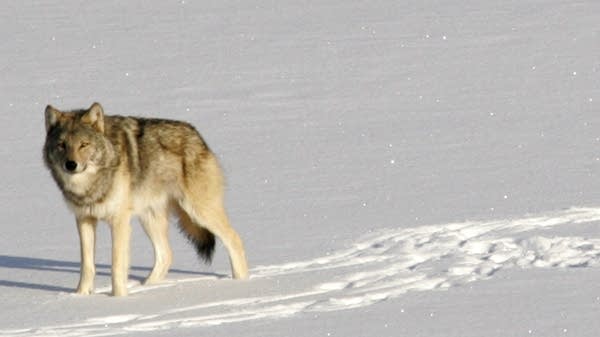Fight over wolf hunting in Minnesota is heating up again

In this Feb. 24, 2006, file photo released by Michigan Technological University, a gray wolf appears on Isle Royale National Park in northern Michigan.
John Vucetich | AP
Go Deeper.
Create an account or log in to save stories.
Like this?
Thanks for liking this story! We have added it to a list of your favorite stories.


